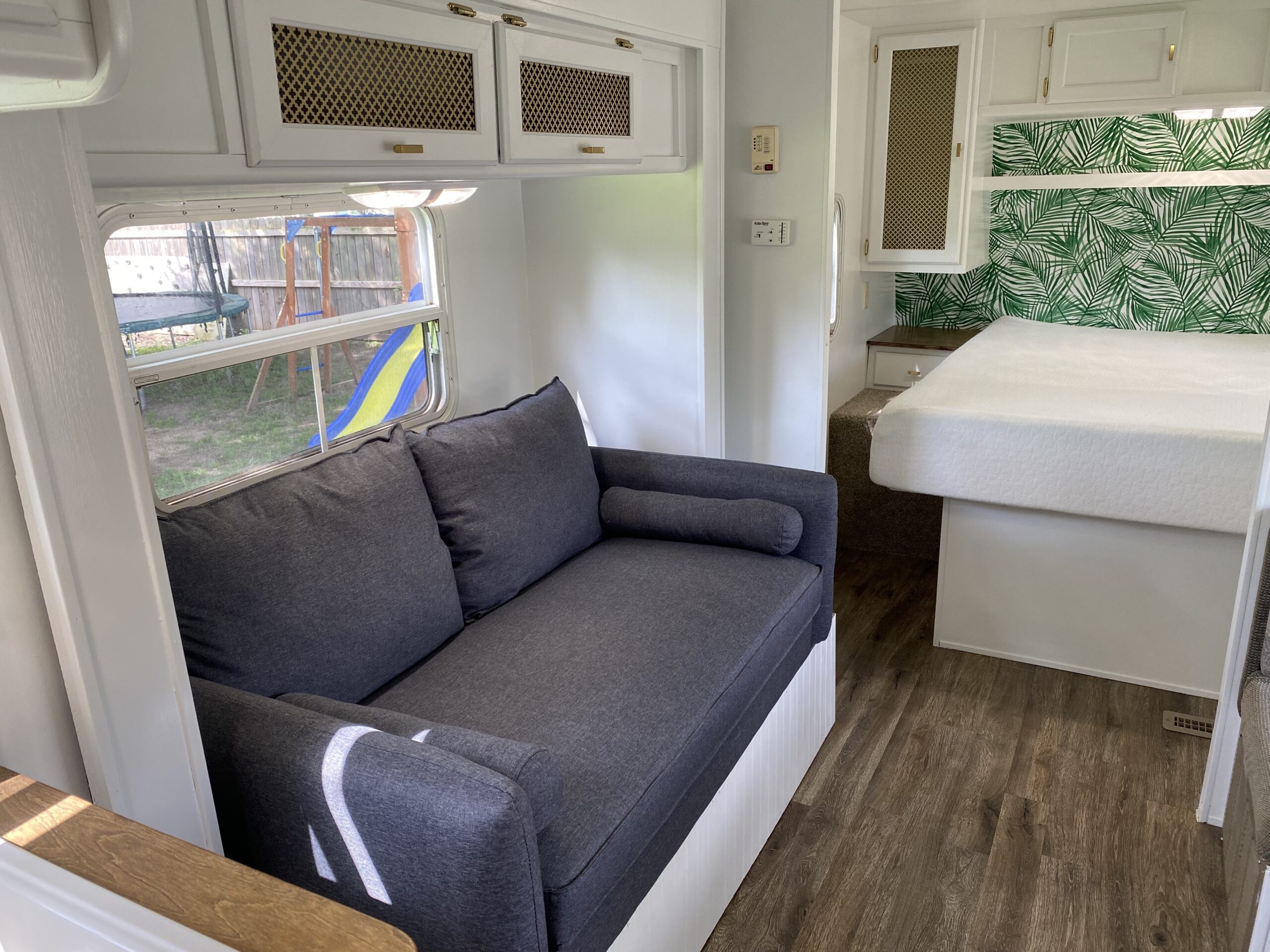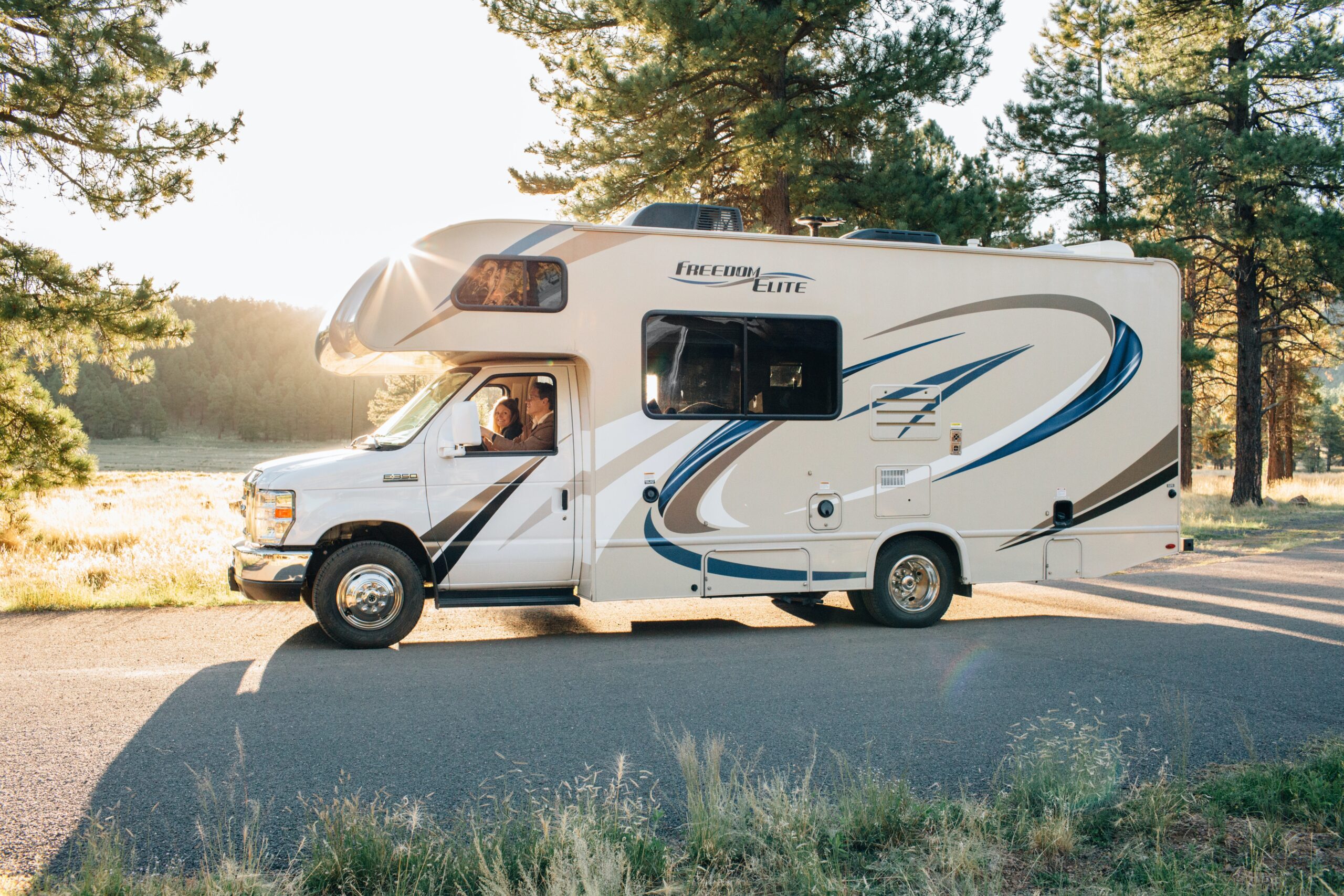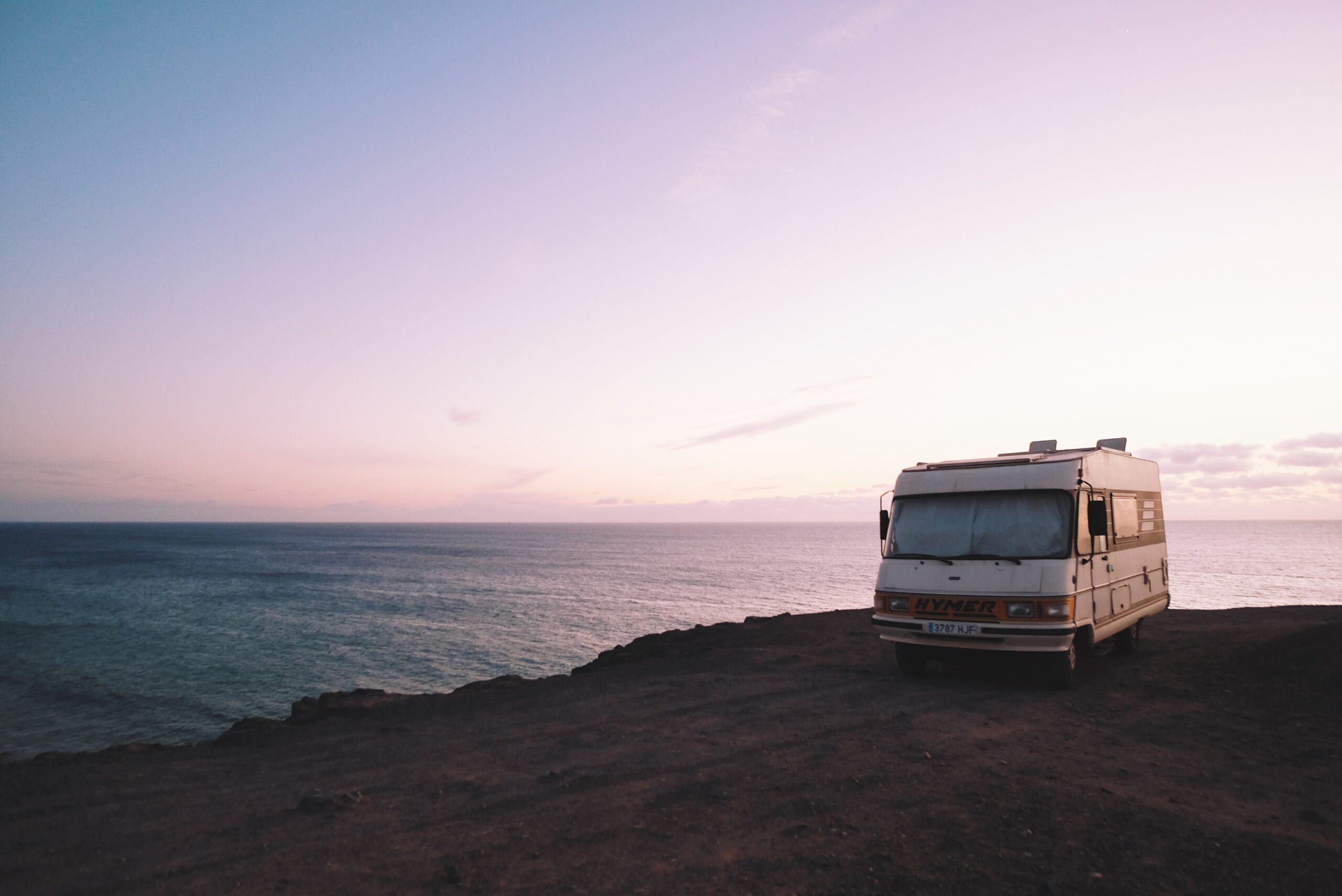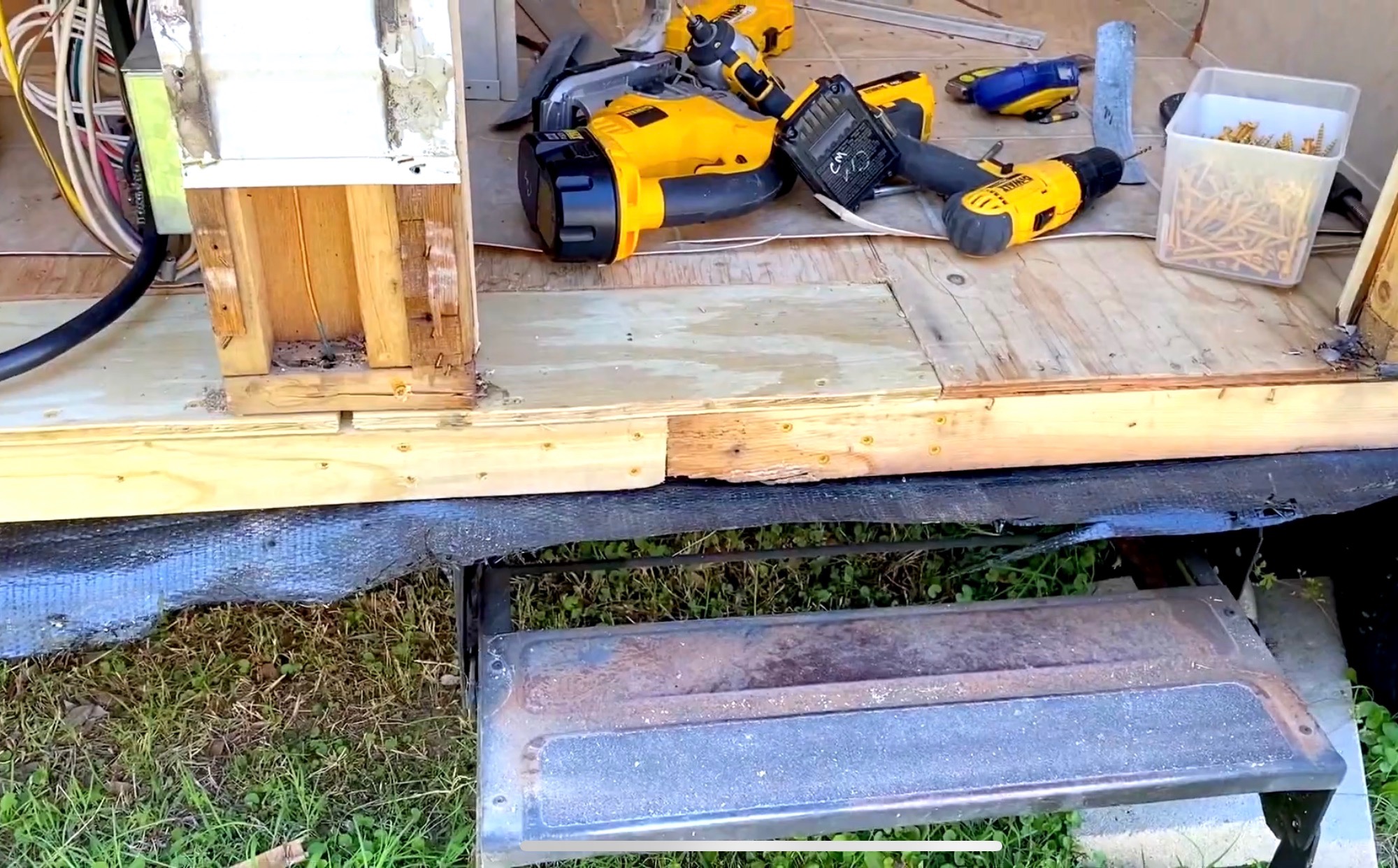Whether you live in an RV year-round or seasonally, there can be many challenges to life on the road. It’s a major adjustment for everyone and it takes some planning.
One thing posing a challenge is how and where to get your mail so you can stay on top of bills, tax information, tag/registration, and other important documents.
Some Americans need to have a permanent mailing address that isn’t a P.O. Box in order to receive certain benefit payments too. This is problematic for many, and it used to be a very difficult issue to workaround.
Thankfully, the need to find a workaround was so great there are now several options to choose from.
Why would an RVer need to forward mail?

If you have a regular doctor or dentist, they’re going to send you billings and correspondence to let you know when your next appointments are and they love to drop those little postcards in the mail.
Friends and family may want to mail cards for birthdays, anniversaries, and holidays. It would be nice to have a way to receive those when the time comes.
A major reason you want to have a mailing address with a street address is in order to receive orders from places like Amazon. Trust me, when you are on the road, being able to order parts for your RV, storage items, and even food, is a huge bonus.
However, Amazon often ships via UPS. Without a street address, you can’t order necessary things. Some places in the country have drop-off locations you can utilize, but what if it’s not inconvenient to drive to or the locations are too far away? As you can see, this can be an issue.
Also, the Social Security Administration needs a street address, even if you have your payments directly deposited. You’ll also need to have a physical street address in order to register your vehicle and pay insurance premiums.
Sadly, there is no way to get by without having a street address as a full-time RVer, no matter what you do. The only way around this situation is to go live in the woods, off the grid, and away from civilization.
Even then, there may be issues. There are very few people who do this 100%. Most still have to maintain a mailing address in town. How?
How can I get mail if I live in an RV?
USPS

The United States Postal Service (USPS) is often utilized in cases where people are considered ‘snowbirds’ and have a ‘permanent’ address in two different locations. This allows you to simply forward mail from one location to the other and switch back when you go to the other address.
The USPS has the ability to place your mail on hold at one location, forward mail, and stop delivering junk mail entirely. This means you won’t get all those paper inserts and flyers that can fill your box when you’re away.
If a short term trip is planned, just use a mail hold. You can pay most bills online and be gone from home for a couple of months with no problem at all.
If you’re going to be gone for an entire season and plan on traveling around to multiple locations, this poses more of a problem. What do you do and how do you receive mail?
If you know your final destination, have all your mail forwarded to that address. If this will work for you, the USPS will forward mail for up to 6 months, but magazines and newspapers will only be forwarded for up to 3 months.
USPS offers online access to your account so you can make changes as you need. This is also a major bonus for those who are on the road.
Mail Forwarding Services
These exist in the form of franchises, such as Mailboxes, Etc., that will provide you with a physical location you can both send and receive mail from.
A new trend that is really catching on with RVers is mail scanning services such as PostScan. These services will scan your mail for you so that you can see what you’re getting virtually.
With them, you can determine which things are important that you’d like them to forward to you and set up a location where you can receive that mail. They can also forward packages to you.
It isn’t perfect, because nothing truly is perfect when you are traveling on the road 100% of the time or for months on end. These are some of the best options, however.
Family or Friends
This is somewhat dependent upon having someone you trust and this may not be possible for all of you. Let’s face it, it’s a big deal to ask someone to pick up your mail every single day and box it up and send it to you, wherever you may be.
It may work well for some people who have children who are able to do this for them and only forward what is necessary. It’s certainly the cheaper option and it really just depends on your social circle. If you can intrude upon someone to handle this task, however, it may be the perfect option for you.
However, if you’ve got nosy Aunt Janice going through your mail, it might make you hesitant to use family and friends. This is a decision you do need to take seriously because credit card offers and things sent with personal information can be used to steal your identity. You need to make sure that your mail is very secure.
Renting a Box
This is what franchises like the UPS Store can offer you. They will receive your packages and provide you with a legitimate street address for those bills that require you to have one. They can also forward your mail, but it is more complicated to use them if you are going to be traveling full-time.
On the positive side, they will receive all those Amazon shipments, Chewy shipments for your dog’s favorite food and snacks, and your box-of-the-month clubs. No matter what you order, you can have it shipped to them.
This sort of box will also serve as a permanent address for someone who RVs fulltime and this can be used to your benefit when it comes to insurance, registration, and so forth.
Many people in the RVing world will choose to rent a box in order to have an address in a state that is cheaper to register and insure their rig in. You could save hundreds per year.
Address Where You Vote

Remember, in order to register your vehicle, you’ll need a driver’s license in that state (in most states your ID and registration must match). You’ll only be able to register to vote in that state as well, at least in most cases.
Do your research and call state governmental offices if you have specific questions you cannot find on the internet.
It’s virtually impossible and a pain to maintain voter registration in a state other than the one you have your insurance and vehicles registered in.
It depends on the state, to be perfectly honest. If they have rules stating you must show a form of ID when you vote, you’re going to need a state license to match your voter ID. Some are more lax than others, but you want to have all of these things ironed-out before you need to vote.
This means you’ve got some things to think about and be sure to take your time choosing the option that works the best for you.
Address With Lower Taxes
This may seem like a strange suggestion until you think about it. Many people who live on the road 100% of the time are self-employed. Some work remotely and some run small businesses they can operate from anywhere. There are many people who own their own websites, sell artwork, and have shopping sites for you to shop at.
When you are earning an income, it makes sense to choose a state as your main address that has no income tax. If you have your own business that is incorporated, you should consider a state in which the laws are more in your favor. Nevada, for example, has always been considered one of the best states to incorporate a business in.
Make smart choices that will suit your finances the best and understand there’s nothing illegal about this. If you live in an RV full time, then that is your domicile and no one can contest that. You’re allowed to travel. You’ve got to have somewhere designated as your home base. It’s necessary.
State Traps
Many states have regulations that if you are living there for more than 3 months, then you are required to get a local driver’s license and tags in that state.
Most don’t actually enforce this rule, but Florida went on a kick a few years ago and began issuing tickets and charging people an ‘impact fee’ for moving there when they did do as told and registered vehicles in that state.
This fee was over $300. They’ve since dropped their impact fee but there are many other states who have joined them in pushing anyone who is staying for more than a month or two, to get a local license and address.
Moving around to different camping areas is one way to avoid this sort of pressure. Staying in campgrounds in your RV isn’t going to get them after you, it’s those of you who have tow vehicles that you drive around town for several months. Beware that some local officers will recognize your vehicle and start to question why you’ve not gotten a new tag yet.
Making Your Checklist
So, from start to finish there are many things to consider and make sure you’ve taken them into account. Here’s a checklist:
- Choose the state with the best income tax, sales tax, and licensing/registration fees for your situation.
- Decide which method is best, USPS, UPS store, franchise, or family to forward your mail.
- Make sure you have access online to change dates of travel from locations.
- Pack your RV.
It isn’t a difficult process, as you can see. It simply takes some time to consider all of your options and the implications of the decisions you make.
It makes a difference where you intend to travel, so you’ll want to know if your chosen method can forward to you anywhere or if you’ll need to have a location predetermined.
Conclusion
Take your time and plan ahead and you’ll be just fine. You will be able to receive your mail, whichever method you choose. It does take some time and a little planning around the kitchen table. If you’ve got a spouse or other family members who are also coming with you, you all need to be on the same page with the decision. It may turn into a little dining room table discussion but will be well worth your time to have it planned and in place before you leave.






